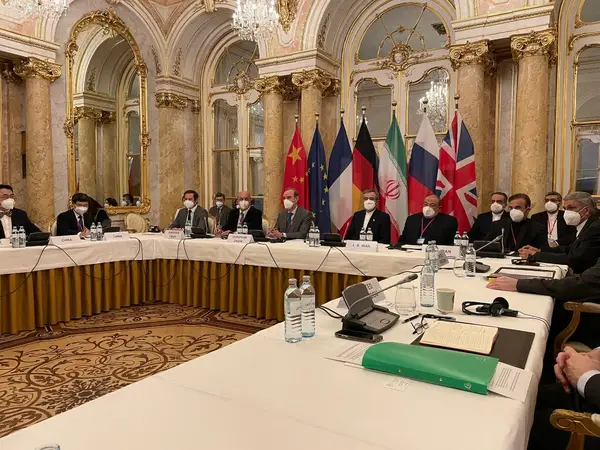European diplomats in Vienna told reporters Tuesday that the Iran nuclear talks have started to discuss details in efforts to revive Tehran’s 2015 nuclear deal.
They also said that there will be a problem if Iran does not show it is serious in nuclear negotiations with world powers this week to restore the Joint Comprehensive Plan of Actions or JCPOA.
Iran's lead negotiator Ali Bagheri Kani said that any understandings reached in earlier talks between April and June were now back on the table. "What was discussed at the six previous rounds of talks in Vienna resulted in a draft and not an agreement,” the Iranian deputy foreign minister told reporters. “And a draft is subject to negotiations …. Nothing is agreed until everything is agreed.”
When the talks were suspended in June, pending Iran’s presidential election, diplomats suggested there had been progress, but that matters remained unresolved both over which United States sanctions violated the agreement, abandoned by previous president Donald Trump in 2018, and over how Iran’s nuclear program might be returned to the limits of the JCPOA from its expansion after 2019.
European diplomats Tuesday flagged up to journalists Iran’s use of more advanced centrifuges, the devices used to enrich uranium. The JCPOA limited Tehran to 5060 IR-1 machines, with a limited number of more advanced ones used for research, but a November report from the International Atomic Energy Agency noted Iran was using IR-4 and IR-6 centrifuges to enrich to 60 percent, far above the 3.67 percent JCPOA cap.
The talks kicked off Monday, with the formal involvement of remaining JCPOA signatories – China, France, Germany, Iran, Russia, and the United Kingdom. The US is taking part only indirectly, which has led to a cascade of attacks on the administration of President Joe Bidenfrom Republicans critical of the JCPOA.
Diplomats from France, Germany and the UK − dubbed the E3 − cautioned reporters against expecting any early breakthrough, suggesting Europe would not impose unproductive deadlines even if the need to revive the JCPOA was becoming more urgent. The senior EU official chairing formal talks, Enrique Mora, said Monday things had started well, although there had been growing European concern both over Tehran’s expanding nuclear program, which brings its closer to the capacity to make a weapon, and Iran’s restricted co-operation with the IAEA.
The Iranian media has been cautious over the talks, while the government of President Ebrahim Raisi (Raeesi) has stressed its commitment to remove US sanctions rather than its willingness to compromise over the nuclear program. Bagheri Kani’s remarks over understandings reached in early talks being open to renegotiation may encourage expectation that talks will last longer but may also be designed to prepare government supporters, many of whom are JCPOA critics, for an eventual agreement.
